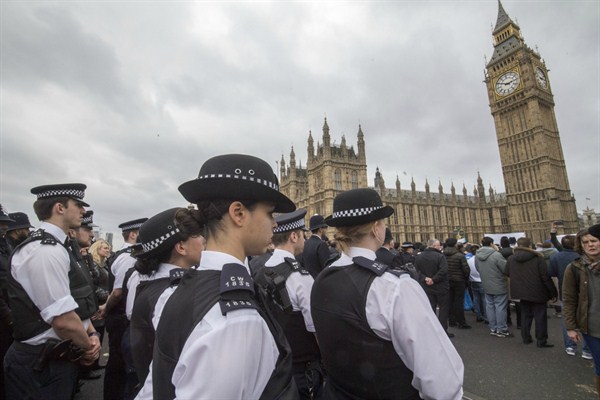Last week, Khalid Masood, a British-born convert to Islam with a long criminal record, plowed a vehicle into a crowd of pedestrians on London’s Westminster Bridge and then stabbed a policeman before being killed by other police. Unsurprisingly, the self-styled Islamic State claimed responsibility. Whether the group actually had any involvement with Masood was irrelevant, since his religious-tinged violence fit its narrative.
As usual the America media was flooded with commentators asserting that the London attack once again demonstrated that violent jihadism is not a distortion of Islam but its true essence. The Westminster attack, they claimed, was just one more battle in a 1,000-year war as Muslims attempt to impose their beliefs on the West. “The war is real,” senior presidential adviser Sebastian Gorka said on Fox News. The comments by Gorka and others who share his perspective demonstrate the influence of what can be called “counter-jihadi extremism” in today’s political landscape.
While counter-jihadi extremism arose out of the 9/11 attacks, its intellectual and psychological roots lie in the Cold War. Before then, Americans mostly directed their attention and energy inward. External threats were seen as a distraction from the more serious work of building the nation. Everything changed with the advent of the Cold War. The Soviet threat demanded sustained mobilization, extensive defense spending and never-ending vigilance. By the time the Soviet Union collapsed, a threat-focused strategic culture had been ingrained in the American collective psyche.

